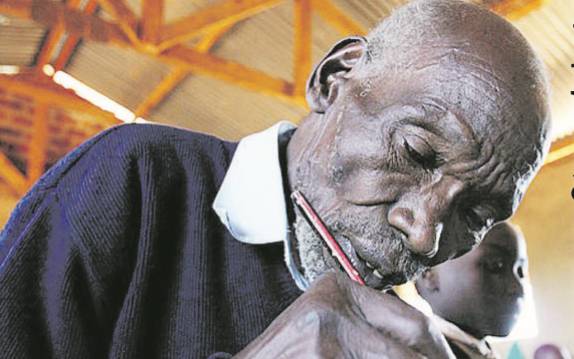×
The Standard e-Paper
Fearless, Trusted News

The late Kimani Ng’an’ga Maruge, the 84-year-old Kenyan who held the record for oldest person to enroll in primary school. [Image: Mt Kenya Star]
If one-time world’s oldest pupil, Kimani Ng’ang’a Maruge were to rise from the dead now, he would most probably be stunned how fast his global fame came tumbling down barely a decade after his death.